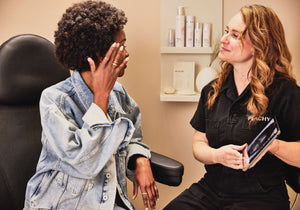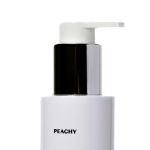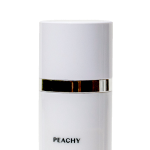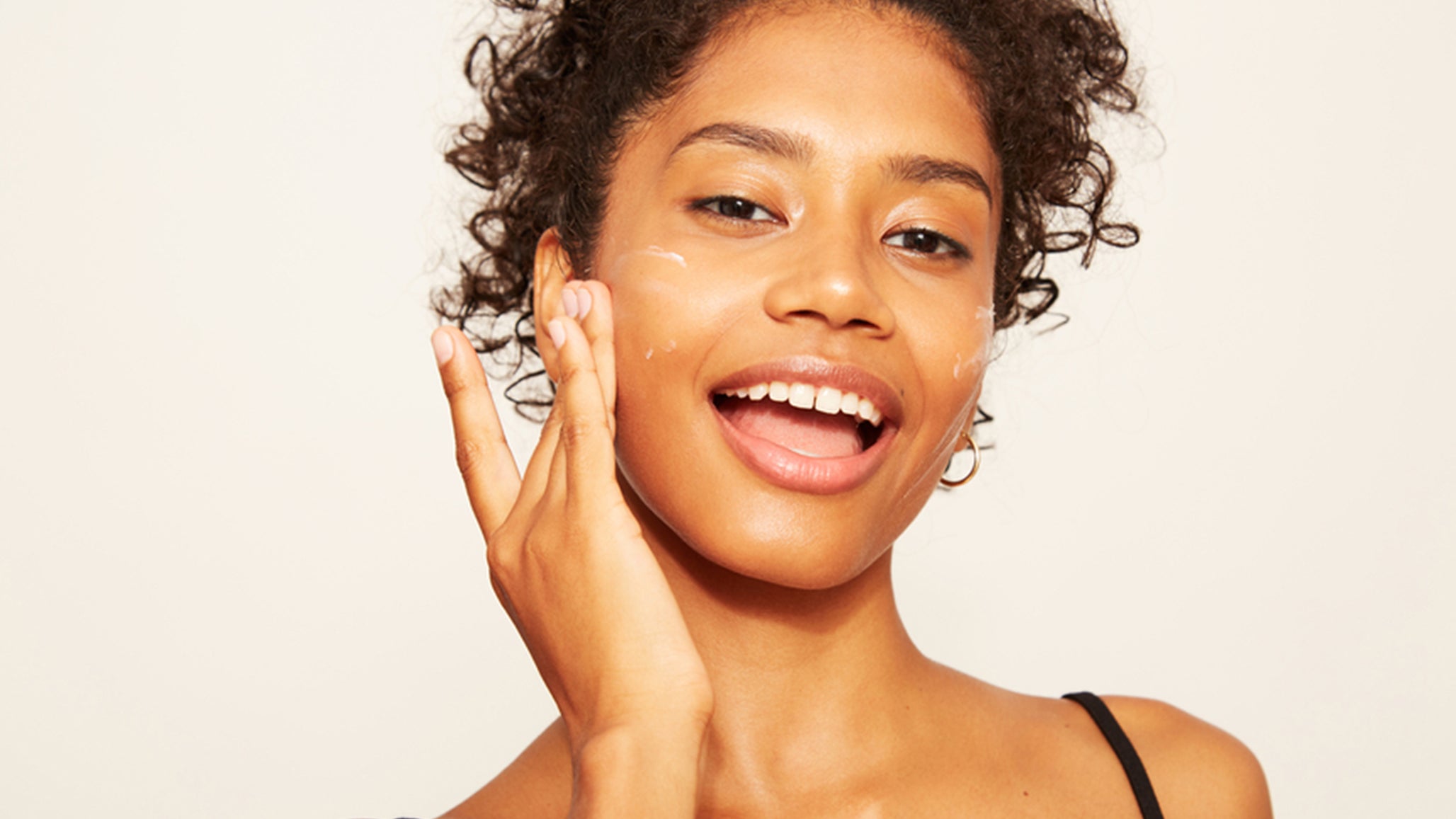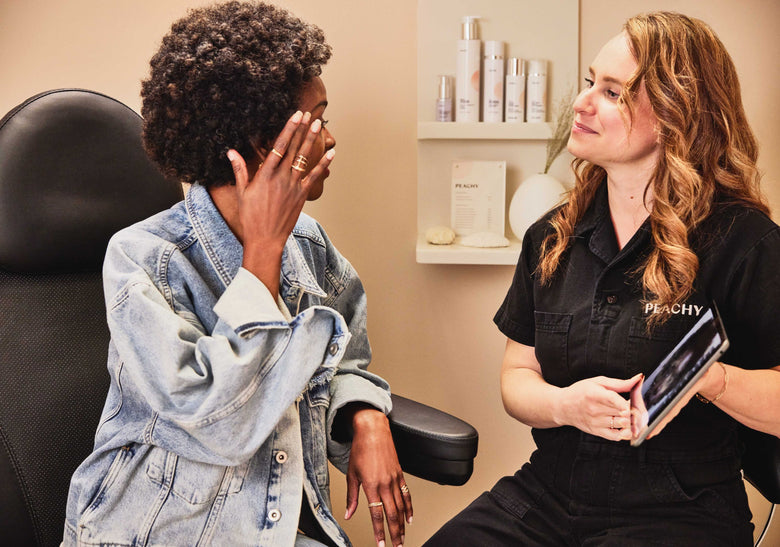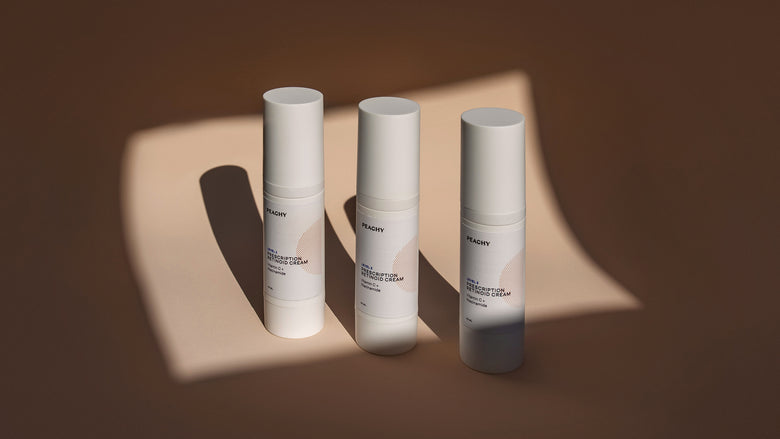What’s the best way to treat wrinkles – with serums or creams? Prescription or OTC? Quarterly botox or monthly facials?
Daunting as the options might seem, there certainly are solutions (proven ones) that both diminish wrinkles and prevent them.
The first is botox. Working below the skin, neuromodulators like botox help to relax facial muscles that cause creasing in the skin above. This prevents cellular breakdown tied to wrinkle formation.
Another solution is actually rebuilding the skin’s structure through collagen production. This one you can do in the comfort of your own home!
As one of the body’s most important proteins, collagen does just about everything. It shields delicate organs, aids bone structure, and plays a vital role in your skin’s renewal and repair.
As you age, your body produces less collagen. For the skin this means less structure, leaving it prone to wrinkles. By enhancing collagen in the right areas, you effectively reverse fine lines and wrinkles that have already formed.
The right vitamin for the job
If you’ve been shopping around for wrinkle care, chances are you’ve crossed paths with either retinol or retinoids. Both come as topicals (serums, creams, lotions, and emollients) which get applied directly to the skin.
While retinol and retinoids are commonly viewed through an either-or lens, both are derived from vitamin A – a vitamin intimately linked with skin function, health, and appearance.
The greatest difference between the two lies in their clinical strength.
Retinol (OTC) – A milder subtype of retinoids, retinol is an ingredient found in many over-the-counter skincare products. While retinol can help with cell turnover, it is not FDA-approved for treating photodamage. Though it is commonly used to treat acne and reduce texturing in skin!
One drawback to retinol is that it hasn’t been significantly studied to support widespread success for a variety of skin types and textures.
What we do know: Retinol is 20 times less potent than its prescription counterpart.
How so?
Bioactivity. To become biologically active (and help boost skin function), retinol must undergo a two-step conversion process in the body, first converting to retinaldehyde, and then to retinoic acid – the biologically active ingredient found in prescription retinoids.
Keep with us!
And it’s this process of retinol converting from one form to the next that leaves the end product with less potency than prescription strength retinoids.
Retinoids (Rx) – Retinoids like the one we use are biologically active from the get go! As an FDA-approved treatment, our retinoid treatment works on a cellular level to counter physiological aging and reverse photodamage. It can also help to reduce acne while balancing tone and smoothing textured skin.
Unlike retinol, there is a wide body of research backing the clinical efficacy of retinoids.
Retinoids diminish wrinkles and fine lines by curbing breakdown in collagen and elastin while boosting production. At Peachy we use tretinoin, a time-tested retinoid available in three prescription strengths.
Other essentials in our retinoid formula:
Vitamin C – A potent antioxidant that prevents common photoaging effects like freckles, liver spots, and hyperpigmentation.
Hyaluronic Acid – Improves your skin's hydration levels by better retaining water and keeping the skin moist.
Niacinamide – Known as vitamin B3, niacinamide repairs the skin’s barrier and protects against photodamage.
Retinoids work for fine lines at any stage! Whether you have dynamic wrinkles or static ones, retinoids spur collagen levels while also countering photodamage and natural aging in skin.
Retinoids are a better solution then?
When it comes to treating and preventing wrinkles, retinoids are decidedly better – for collagen production, for enhanced skin function, for all of the reasons mentioned above.
Sound solutions guide quality outcomes, for any form of care! Prescription retinoids work with your skin to make wrinkles markedly less defined, going where retinol and other, less concentrated treatments cannot.
If you’d like to know more on how retinoids lead to fewer and less noticeable lines, come to one of our studios. We’d love to see your face!
Consults at Peachy come free of charge, every time, and you’ll speak with a board-certified provider focused exclusively on wrinkle treatment and prevention.

